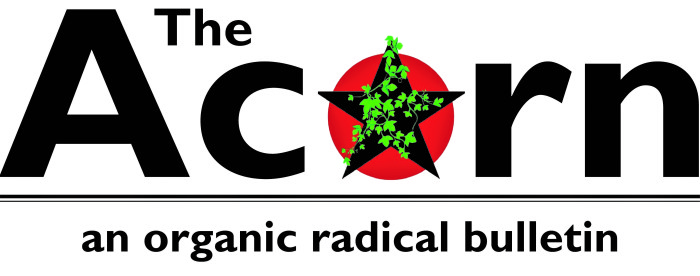Number 76
- The truth can no longer be hidden
- Reacting to change…
- Eight rights gone wrong
- Max Wertheimer: an organic radical inspiration
- Acorninfo
1. The truth can no longer be hidden

Imagine you are navigating a small boat through a large harbour on a dark and foggy night.
It is extremely difficult to find your way because you can hardly see anything and even the buoys marking your way are only visible when they are right next to you.
You become aware of a sound ahead of you and you see several very vague different shapes appearing in the gloom.
There’s a light there and another there. So two vessels approaching, perhaps. But, wait, what’s that right up high?
Suddenly you realise that these are not separate objects at all, but parts of one huge oil tanker bearing down on you, which you urgently need to avoid!
 This ability to interpret minimal incoming data in order to understand the bigger picture, this capacity for joining the dots, making the connections, is an essential one, as Max Wertheimer (see below) set out.
This ability to interpret minimal incoming data in order to understand the bigger picture, this capacity for joining the dots, making the connections, is an essential one, as Max Wertheimer (see below) set out.
It is a particular kind of intelligence. It is not the kind of intelligence that allows people to remember lists of dates or to perform complex mathematical equations, but it is still intelligence, and crucial intelligence at that.
Over the last few years, something very alarming has been looming up ahead of us in the fog of unfolding history.
Initially, this looked like a variety of different issues and trends that were not necessarily connected.
It was not obvious to us all, to start with, that climate capitalism was linked to the Covid operation, that war in the Ukraine was linked to the Great Reset, that the pope was linked to the transhumanists, that left-wing “intersectionality” was linked to the impact investment agenda, that Charles and the British “Crown” were very close to the global financial mafia, that the United Nations and the World Bank had been working together for decades to deliberately impose a “development” agenda that benefited financial interests at the expense of humankind and nature.
But now, vast numbers of people are aware of these connections and understand that all these elements are aspects of one single agenda being imposed on us by one single power.
This power depends on its own invisibility for its success. Its scams will simply not work if we can all see who is pulling the strings and with what aim in mind.
It is therefore important for this single power, this criminal global money power, to try to discredit those who can see the bigger picture and to stop them from communicating what they have seen.
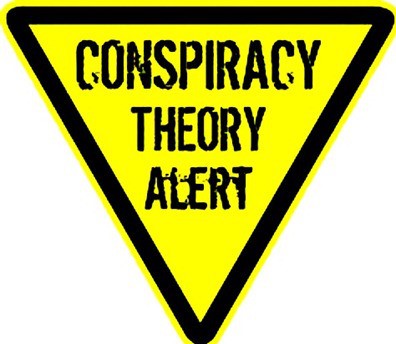 In their propaganda, the crucial form of intelligence that enables us to make sense of the world around us, despite their attempts to keep us in the dark, is denigrated as something bad.
In their propaganda, the crucial form of intelligence that enables us to make sense of the world around us, despite their attempts to keep us in the dark, is denigrated as something bad.
“Conspiracy theorists” have long been the target of ridicule and attack from the mafia and their henchmen.
But now they are going even further by announcing that they want to “stop” alleged conspiracy theory in the same way that they have already banned and censored so-called “misinformation” on specific health issues.
A #ThinkBeforeSharing campaign has been launched on the Unesco website. Unesco is, of course, an agency of the United Nations, the global body which is pushing, with the World Bank and the World Economic Forum, the Sustainable Development Goals 2030 agenda, aka The Great Reset.
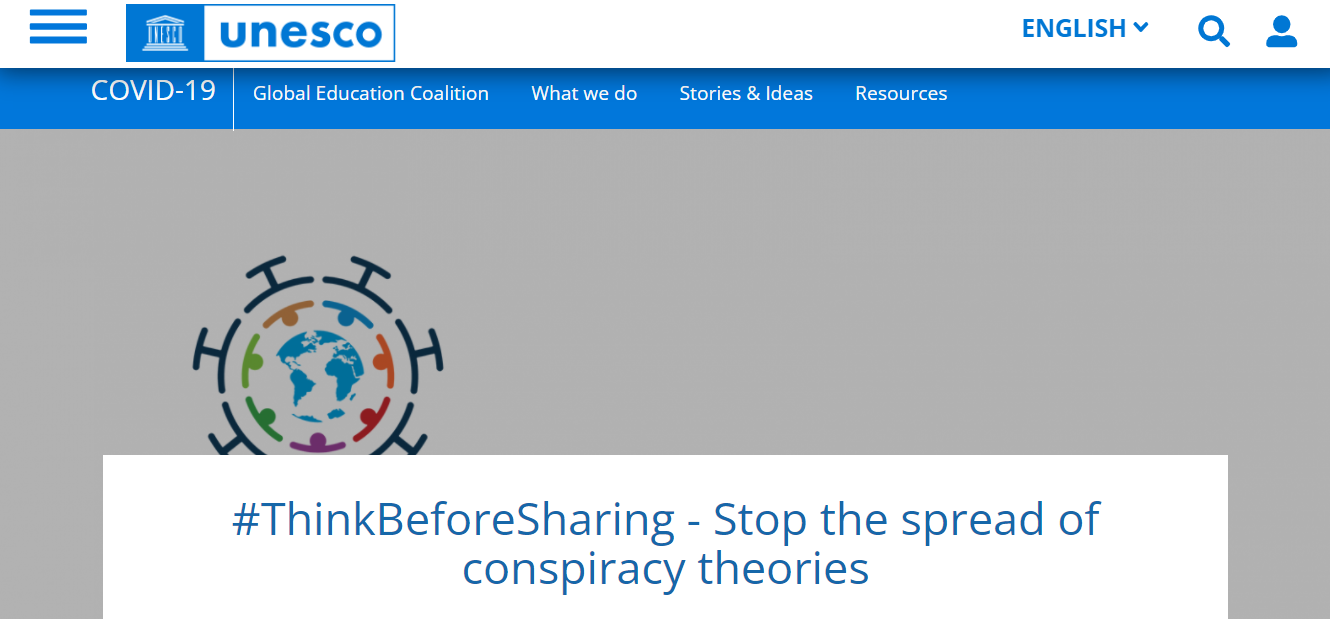
Among the thought crimes highlighted as part of this inquisition, under the heading of “antisemitism“, is “linking an alleged conspiracy to Jewish individuals or groups (e.g. the Rothschild family or George Soros, a philanthropist) or the State of Israel”.
So it is “antisemitic” to mention the role played by any individual who happens to be Jewish, even if this role is demonstrably real and significant? Ridiculous.
But more alarmingly still, the campaign attacks the very capacity for joined-up thinking which allows us to identify the oil tanker in the fog, the danger with which we are faced.

It complains that what it calls conspiracy theories “offer an explanation of events or situations which are difficult to understand and bring a false sense of control or agency”.
They present us with “an alleged, secret plot”, “a group of conspirators” and “‘evidence’ that seems to support the conspiracy theory”.
Note here that by placing quote marks around ‘evidence’ they hope to cunningly imply, without even addressing any specific issues, that the evidence backing what they term “conspiracy theories” is invariably and necessarily invalid!
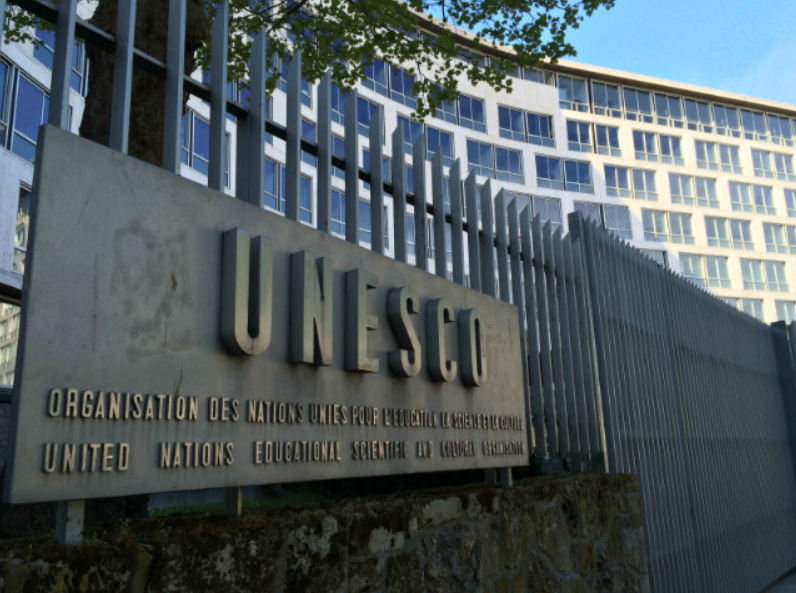
Unesco and its friends are alarmed at the very idea of “suspicion of official accounts” or of “reinterpreting random events as part of a broader pattern”. Their sly quote marks would better have been deployed here, around the word ‘random’…
They warn people off any author who is “not attached to a reputable organization or institution” (such as the UN, the WEF or the World Bank, presumably) and even, astonishingly, any author who “raises questions instead of providing answers”!
Unauthorised explanations of what is going in the world are “dangerous” because they help “violent extremist groups” and “spread mistrust in public institutions”, somehow causing both “political apathy” and “radicalization”.
“Suspicion breeds confidence” as the posters declared in Terry Gilliam’s classic film Brazil, and Unesco warns us to “beware” that the dreaded theories could even be spread by “friends, relatives”. “Don’t suspect a friend, report him”, to quote the 1985 film again. Is that the chilling dystopia in which we now find ourselves, in 2022?
In truth, the campaign reeks of panic and is likely to prove a spectacular own goal.
The very announcement that “this UNESCO campaign is implemented jointly with the European Commission, Twitter and the World Jewish Congress” is surely likely to fuel the kind of “conspiracy theories” that they are supposedly combating?
Simply the fact that the campaign has been launched, let alone its content, confirms that there is indeed a conspiracy that the global authorities are desperately trying to cover up and that the UN are part of it.
Even those who have not yet realised that there is a bigger picture to be seen will quickly do so, thanks to this “stop the conspiracy theorists!” scaremongering.
The truth is the truth, no matter how loudly the global mafia shriek the opposite.
And once it has come into view, it can never be unseen.
by Dave, editor of The Stirrer

Preamble
We talk a lot about radical change and why it’s needed. Sometimes, it’s useful to pause and consider what we really mean by radical change. While doing that, we need to think about how most people regard change and whether they see it as a positive thing in their lives or whether it’s something that’s done to them with no regard as to how they feel about it. The further up the food chain someone is, the more likely they are to embrace the notion of constant change – for those of us lower down the pecking order that would be the increasingly rapid and unpredictable changes that are being imposed upon us in order to benefit the elites who presume to rule over us.
For people further down the food chain and less able to exert meaningful control over their lives, being on the receiving end of rapid and unpredictable change will, understandably, lead to a longing for some sense of stability and predictability in their lives. That encompasses both economic and social change. It’s the impact of these changes, separately and combined with each other in a toxic downward spiral that I want to start the process of looking at in this piece.
Dispossession and the search for meaning

There has always been an element of change within human society. There have been periods of human history where the pace of change was manageable and evolved in an organic way. There have also been periods where ‘black swan’ events such as wars, invasions and plagues have led to dramatic and profound changes. However, over the last two hundred and fifty years, the pace of change was speeded up with the Industrial Revolution. Over the last thirty years, the rate of change has been massively accelerated with the onset of the introduction/imposition (delete according to preference) of information technology which now pervades every aspect of our lives, whether we want it or not.
Life on the land was far from perfect but there were compensations for that in the bonds of mutual support people had with each other alongside the celebrations and rituals that marked the passing of the seasons. Celebrations and rituals that came from a close association with nature. Celebrations and rituals, often with pre Christian roots, that gave people a sense of continuity and meaning in their lives. Celebrations and rituals that helped to form a genuine sense of community, even if that was in the face of hardship. Celebrations and rituals that were largely but not completely swept away by the Industrial Revolution and the mass entertainment that followed.
Mass entertainment that was to be consumed as a product in opposition to the folk, do it yourself entertainment that people used to create for themselves. Mass entertainment that acted as a distraction from the drudge and slog of industrial life. Mass entertainment that aimed to either pacify, or sate with sensationalism, rather than allow people to develop their own amusements that would allow them to bond with each other. While it may appear that mass entertainment has dumbed people down, you don’t have to scratch too far beneath the surface to see that in one way or another, people have always been seeking ways of building a sense of community and identity with each other. Needless to say, a lot of the time, these efforts at building a sense of community and belonging have had to adapt to the culture of industrialism.
Football and the tribal sense of loyalty to club and community is one example of how people have adapted a form of mass entertainment to create a sense of belonging. Obviously, with the top clubs becoming global brands and the top echelons of the game being about money, the attempts to create a sense of belonging are being eroded. However, the lower down the leagues you go towards the grassroots to neighbourhood, small town and village clubs, the more that sense of community and belonging has not only survived but in fact, is thriving.
Even the seemingly over the top consumerism of Christmas has deeper roots going back before Christianity to our pagan past when there was a profound need to mark the passing of the shortest day of the year and welcome the gradual onset of the days getting longer. It was, and still is beneath the gloss of consumerism, about marking the passage of the seasons and getting together toward off the gloom of mid winter. No matter what the elites who rule over us do, these rituals and celebrations that tie us to the passing of the seasons and nature will always be with us in one form or another. That’s because they’re a part of what it means to be truly human. But, they’re under threat as never before…

The pace of change is rapidly accelerating and we’re entering a period where our humanity is being challenged like never before. Industrialism was the first, major shock of change to us. The decline of heavy industry and the destruction of the communities and bonds that had developed to soften the blows of slogging away in the factories and mines was another shock. Now, we’re in the period of the most profound shock of all – the age of information technology and for want of a better term, bio-hacking that is changing what it means to be human.
These changes have ushered in a heightened sense of uncertainty, precarity and a growing dread about what the future holds for us. The precarity in housing and employment (a.k.a. exploitation) renders the existence of a growing number of people down to little more than a daily battle for survival. A precarity that started with being thrown off the land at the start of the Industrial Revolution and is being accelerated on a daily basis by the technological ‘revolution’ we’re now being subjected to.
The Fourth Industrial Revolution

Welcome to the Fourth Industrial Revolution (4IR) which is the term that best describes the series of technological, economic, societal and cultural changes that are being imposed upon us. Not for the benefit of humanity as a whole but for those who presume to rule over us while concentrating more of the world’s wealth into their hands.
This has been the cause of many arguments and rifts but it stands repeating – crises such as Covid are intentionally being leveraged to accelerate the trends towards the 4IR. Merely saying that has brought accusations of being a conspiracy theorist down upon our heads. May we suggest that those hurling those accusations take a few steps back to reflect on what has happened to us since March 2020.
One example is the acceleration of the shift to a cashless society. At the start of the Covid crisis, many if not most shops didn’t want to handle physical cash because it was perceived as a vector of transmission of viruses. While some have moved back to accepting physical cash, there has been a marked shift towards people paying by card or by their phones. Forms of payment that unlike physical cash, allow every purchase and transaction to be monitored and tracked if so desired. If you think this is going to stop with cards and phones, think again. Using microchips implanted into the human body is now being seriously touted as a means of payment and conducting other transactions in the not too distant future.
Welcome to the matrix…not! A digital control grid that makes it increasingly difficult for anyone who is offline for any reason to be able to function in and navigate the modern world. This piece was written just after we had relocated down to near Bristol (August 2022). Events conspired so that at the time of writing, we were a good few days away from being reconnected to the Internet. Trying to do the necessary post move life administration without an Internet connection proved to be a nightmare, particularly after being kept on hold for up to an hour or more while trying to get connected to a human being at a utility company!
Life is being designed so you have to be online, in the matrix and as a consequence, constantly monitored and tracked, just in order to survive. The only other option available is to go completely off grid which in a country like the UK, is a challenging proposition to say the least.

Another disturbing aspect of the Covid lockdowns was the normalising of digital means of communication with each other as a substitute for real life, face to face contact. Even as more became known about how Covid was actually transmitted, who was really vulnerable and that maskless face to face contact could take place without much risk, the shift towards virtual means of communication seemed to stay with us.
The promotion of the Metaverse with the offer of living life in a virtual existence is another disturbing trend towards replacing real life human contact with a watered down, soulless by comparison digital substitute. Taking a few steps back from the Metaverse to the online text based exchanges we’ve become accustomed to over the last quarter of a century, even these lack the nuances of face to face contact where there’s a lot of non-verbal communication via facial expression. Think of how many debates that in real life would have ended with an acknowledgement of differences but online, lacking the nuances of non-verbal communication, have ended up in rows, blockings and cancellations.
That’s a lot of accelerated change taking place over an increasingly shorter time. A growing number of people are being left behind and as a result, excluded by these changes. We had a mercifully brief taste of that when we were offline for a couple of weeks and simply unable to undertake the life administration we had to do. For those who for whatever reason cannot get or afford a secure Internet connection, life is a nightmare. These changes to how society functions that throw an increasing number of people under the bus are casing a growing degree of alienation and anger. That’s before you take into account the number of societal and cultural changes a growing number of people feel they’re being subjected to without any say in the matter.
Culture shock

Societal and cultural norms have always evolved but generally at a pace that people can handle and adapt to. That means evolving at a pace that gives people the sense that it’s something they can go along with and have an active role in rather than feeling it’s something that’s being imposed upon them. It may arguably be a subjective impression but it certainly feels we’re in an era where the rate of societal and cultural change has accelerated to the point where many people feel they have no control over it. Not only that, it increasingly feels like it’s being imposed upon us regardless of whether we want to accept it or not. When things get to that point, inevitably there’s going to be a reaction and as we have seen, quite often, that reaction will be one that those who see themselves as progressive will not like. Here’s one example of how this plays out…
At the end of July 2022, a series of drag queen story readings were held at a number of libraries across Bristol – these events were aimed at children. We’ve spent most of our adult lives assuming that drag is adult entertainment. We have absolutely no problem with drag as a form of adult entertainment if that’s what people want. However, as grandparents, albeit that our two grandkids are definitely not old enough to attend a drag queen story reading, we’ll freely admit that the whole concept makes us feel decidedly uneasy, to say the least.
Some elements have tried to defend the drag queen story reading events as nothing more than a slightly risqué form of pantomime. We had a look at what the defenders of these events tried to pass off as pantomime and while it may be an admittedly subjective judgement, to our eyes, it looked like drag which in our view, is strictly adult entertainment. Our concerns and those of many others is that in an increasingly pornified culture, these events are leading to the sexualisation of children and removing innocence from their lives. Whether this is intentional or not is the subject of some fierce debate with those thinking this is intentional being branded as conspiracy theorists. It’s perfectly understandable that a fair few parents are at the least, very concerned about this development and at the most, absolutely livid.
The problem is that merely raising concerns about this gets you branded as ‘homophobic’, ‘transphobic’ and a ‘bigot’ amongst many other accusations. So as a consequence, many parents and grandparents feel that it’s best to keep their views to themselves. Rather than protest, they choose to keep their heads below the parapet. While doing so, they are baffled that no one describing themselves as progressive is listening to and acknowledging their genuine concerns and engaging in an honest discussion about the issues at stake. Instead of an open discussion, we get a culture of name calling and cancelling. The inevitable consequence of this is the creation of a political vacuum.
So, it came as no surprise to us when we heard that the likes of Patriotic Alternative and their ilk saw this vacuum, recognised the opportunity it potentially offered them and, cynically and self servingly, called a number of protests outside of these events. Inevitably, when the likes of Patriotic Alternative and their ilk turn out to picket and protest, there will be a Pavlovian response from Antifa and the like. As a consequence, a number of these protests were counter-protested by Antifa and others, thereby ratcheting up the tension in an already emotive situation.
A consequence of this is that anyone raising concerns about the potential harms to kids of these drag queen story reading events is now automatically branded as being in league with the likes of Patriotic Alternative and the like. Legitimate concerns are brushed aside and the accusations fly in the direction of anyone questioning the purpose of these events. Those defending these events and hurling the accusations are unwittingly creating more of a political vacuum for those with nefarious motives to exploit.
The above is just one example out of many showing how rapid and quite often baffling social changes are creating what can best be described as a culture shock. That’s a term that used to be applied to the experience of travelling to far off lands and suddenly being immersed in a completely different culture. It now applies to the growing number of people who don’t travel anywhere but feel that the society they live in is no longer recognisable.
Merely acknowledging this may be seen by some people as having a reactionary take on things. The word ‘reactionary’ has tended to be used as a another way of describing people set in their ways and with attitudes that may be considered to be bigoted. Maybe it’s time to reclaim the word ‘reactionary’ to describe what is a profound discomfort with rapid and sometimes baffling societal change that people feel they have no say in or control over. When people feel that change, societal, political or economic is being arbitrarily imposed upon them, inevitably there’s going to be a reaction.
The barriers to meaningful change

What has struck us about what was discussed in the previous section and other aspects of what some have described as the ‘culture wars’ is the tone deafness of the left and also, what sadly feels to us like too many anarchists as well. Anarchism is a broad church ranging from those such as Winter Oak who have a profound understanding of how humanity is still a part of nature and how we cannot transcend that all the way over to those who with their transgender activism, also seem to be willingly embracing a number of aspects of transhumanism.
As we tend more to the former interpretation of anarchism, to us it feels as though the tendency that seems to be accepting rather than challenging transhumanism is the one that’s holding sway at the moment. It’s a tendency that appears to have not learnt the lessons of the failures of imposed social upheaval by those identifying themselves as left wing. A tendency that’s so wrapped up in itself that it has become blind and deaf to the concerns of many ordinary people who want some degree of continuity and stability in their lives. It’s also a tendency that seemingly cannot join the dots to see the bigger picture.
Change has to happen because society cannot go on along its current trajectory. It’s not sustainable on a planet that has finite limits to its resources. It’s definitely not sustainable in terms of the impact rapid, unpredictable and uncontrollable change is having on our collective psyches. The problem is that as things stand, due to the ineptitude of the left and a fair few anarchists as well, when it comes to relating to the concerns of ordinary people, there’s a real chance that the impetus for change could become the preserve of the more reactionary elements in society.
The protests against the drag queen story reading events initiated by the likes of Patriotic Alternative is but one manifestation of this. The attempts, largely but not completely unsuccessful, by reactionary elements to latch onto the various currents opposing lockdowns,vaccine mandates and vaccine passports during the Covid crisis is another manifestation. The dismissal of people raising concerns about the possible harms to young kids of the drag queen story reading events as ‘bigots’, ‘homophobes’ and ‘transphobes’ is one example of a damaging tone deafness. The dismissal of those of us raising concerns about the adverse impacts of the Covid lockdowns as ‘conspiracy theorists’ is another example of an almost cult like tone deafness to the concerns of ordinary people.
Are these just the rantings of a bitter old activist cast aside by the ‘movement’? At some point that question will be raised… All I will say is that age gives you a bit of perspective, particularly when you have forty five years and counting years of activism in one form or another on the clock. During those forty five years and those preceding my life as an activist, I’ve seen a lot of change. Not all of it has been bad – there have thankfully been positive and much needed social changes. There have also been many negative ones that serve to divide us, isolate us, remove us further from nature, crush any vestige of spirituality and take us away from what it means to be truly human. All I can conclude is that we’re very much heading in the wrong direction and the time frame we have to reverse what’s being done to us is shrinking by the day.
Conclusion

As already stated, change has to happen. But it has to happen in a way that truly gives people control over their lives. Ultimately, that’s what people want – being able to control their lives alongside a sense of purpose and meaning. Three things which for many of us have become increasingly difficult if not impossible to realise. With regard to having a sense of purpose and a deeper feeling of meaning, that means acknowledging that a lot of us need some kind of spiritual dimension to our lives.
It also means trusting ordinary people to get on with building the society we want. What will hinder that are inward looking supposedly revolutionary groups who claim to have the answers but really want to impose their vision of an ‘ideal’ society on the rest of us. That sadly includes some anarchists as well. Some but not all anarchists as there are a fair number who refuse to subscribe to a rigid, exclusionary group think and who will deal with the complexity of reality as they find it.
Revolt is happening. It’s been happening since the imposition of the first lockdowns. It’s continuing with the farmers protests in the Netherlands against threats to shut a number of them down in the name of (supposedly) dealing with climate change. Protest and revolt are coming from places that many people describing themselves as progressive find uncomfortable because many aspects of what they see fail their rigid purity tests. Rather than engage with messy and complex realities, they prefer to seal themselves off in bubbles in the hope that one day, something will emerge that will meet their purity tests. Trust us, that will never happen! One of the most important lessons we’ve learnt over the last forty five years is that you have to meet people where they are and work with them to build change from there. There are enough signs that the hermetically sealed activists can be bypassed by those of us seeking genuine, meaningful and lasting change. It will happen…

The whole question of “rights” is problematic. For a start, they are generally seen as something “given” to us by authority. In accepting “rights” do we also inadvertently accept authority? And how real are these “rights”? Are they for keeps or will they be withdrawn by authority the moment that they are no longer convenient? We have all gained a little more insight into these questions since March 2020: it has become painfully clear that rights most of us consider fundamental to our society are not regarded as such by those in power. But at the same time as being deprived of rights we want to have, we have also been landed with rights we could well do without! Here are some examples.
i. The Right to Work

Calls for the “right to work” always sound strange to those who have spent years setting the alarm for 5.30am so as to be able to embark on another glorious day of mind-numbing wage slavery. Surely what we should really be demanding is the right to lead a decent life without being economically forced to sell our living time and energy to someone else? The right to decide for ourselves how and when we wish to contribute to society? The right to be what we want to be rather than what we have to be? The “right to work” is a particular and peculiar demand which has long been cherished by the kind of Left which pretends to oppose the system while enthusiastically defending the global work camp it has built for us, which defines the oppressed majority in terms of their enslavement and in whose future utopia this majority will remain in exactly the same condition as now, as “workers” sacrificing their days on earth for the benefit of the minority in power. Arbeit macht frei? No, it doesn’t, comrades!
ii. The Right to Vote
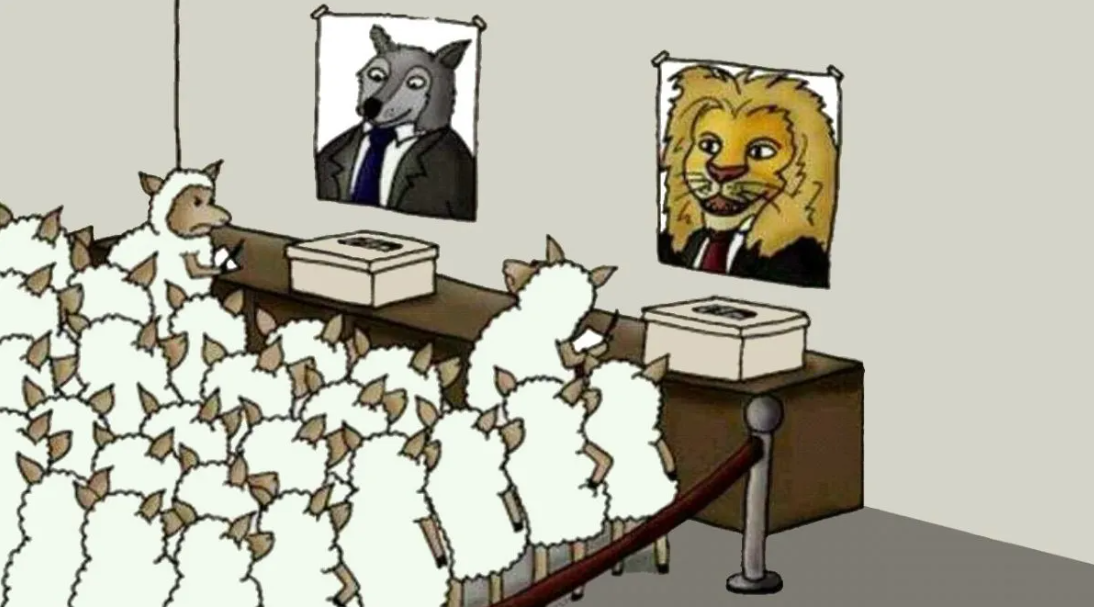
The “right to vote” sounds like a good thing from a distance; after all, being deprived of the right to vote because you were not rich enough, or not a man, would seem grossly unfair. But, on closer inspection, the “right to vote” turns out to be a great ball of nothingness. For a start, voting does not generally involve expressing your opinion on a specific topic, but is rather a matter of choosing a “representative” who will express your opinion in your place, as he or she sees fit. Given that the choice of representative is limited, that a party system has been set up to ensure that these potential representatives toe a certain line, that these parties are all owned and controlled by the ruling mafia, that the framing of the electoral issues is carried out by the media wing of the same system, as is the credibility afforded to the various contenders, and that there are growing suspicions that the vote-counting process itself is fraudulent, we might conclude that the right to vote is not all that it seems. If it serves to channel efforts and hopes into a pointless and draining dead-end, then it in fact amounts to a thoroughly poisoned chalice.
iii. The Right to Development

As pointed out in this recent piece, the global financial mafia have long packaged their vile activities as something desirable called “progress” or “development”. They have gone so far as to use the United Nations, one of their main front organisations, to declare that “the right to development is an inalienable human right”. This is pushing the idea of a “right” into the realm of absurdity. The right to have your ancestral land stolen from you and plundered by corporate crooks? The right to be deprived of your community, your self-sufficiency and your happiness in exchange for the right to be exploited for the profit of the global financial slavemasters? The right to stand by and watch as our world is turned to toxic sludge by the Greed Monster?
iv. The Right to Internet Access
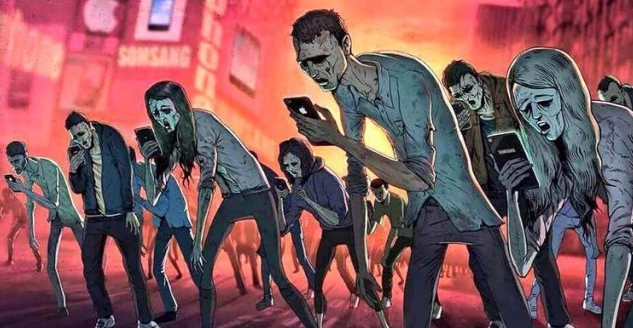
The “right to internet access” is another phoney concept invented by the United Nations and co. It is sometimes termed “inclusivity”, with the suggestion that there is something nice about generously allowing every man, woman and child in the world to be “included” in a digital concentration camp termed the metaverse. There they will enjoy the “right” to be monitored, controlled and commodified by a vast faceless machine, whose algorithms and measurable outcomes are the new chains with which our self-appointed rulers aim to bind humankind. How about the right to live beyond its toxic reach?
v. The Right to be Protected from Terrorism

A superb example of how new “rights” are often devised as weapons against existing and much more important rights, came in 2005. Charles Clarke, at the time the UK’s Home Secretary, used the terror attacks in London to call for changes to the European Convention on Human Rights. In particular, he said that “citizens’ right to privacy had to be balanced with their right to be protected from terrorism“. One of the central planks of the UK’s post-7/7 “anti-terror measures” was a proposed data retention law, calling for increased surveillance of phone calls and emails. It’s funny how every single “shock” event that takes place serves to advance the same techno-tyrannical agenda…
vi. The Right to Self-Identify

There are some “rights” which are not so much misleading as in flagrant contradiction of any notion of truth. Giving someone the right to say they are a man, when they are in fact a woman, or a woman, when they are in fact a man, is a prime example. We might decide, like the Judean revolutionaries in Monty Python’s Life of Brian, that even if it is physically impossible for a man to be pregnant, there is no harm in granting him the theoretical right to be so. While we’re at it, we could also give people the theoretical right to become invisible at will, to walk across the Atlantic Ocean or to turn themselves into golden eagles at any moment they fancy. Where’s the harm in the delusion? But the trouble is that this “right” impacts on other people. How can we reply to someone who insists that they were ahead of us in the queue at the Post Office, but happened to be invisible for most of the time? If we challenge their account, will we be guilty of Invisibility Denial, a serious hate crime? There is always a potential clash between our own rights and those of others: our social interactions depend on a subtle organic balancing of our respective needs. But giving credence and weight to absurd fabricated “rights”, such as the “right to self-identify“, in other words the “right” to be universally regarded as something that you are not, restricts others’ rights in a very unbalanced way. Such pseudo-rights, far from being silly but harmless, become a threat to real and fundamental rights to freedom and self-expression.
vii. The Right to be Vaccinated

The same phenomenon is apparent with the “right to be vaccinated“, currently being acclaimed all across the world. This “right” is often expanded to include the notion of a “right” to be protected from contamination from those who have, for some reason, not taken up their “right” to be injected with toxic substances developed and sold by a sociopathic global criminal mafia. We see here how easily the notion of a “right” can morph into an obligation. The great thing is, of course, that it remains disguised as a positive, thus allowing the world’s virtue-signallers to self-righteously wield it as a morally-authorised weapon with which to attack their non-conforming enemies.
viii. The Right to Die
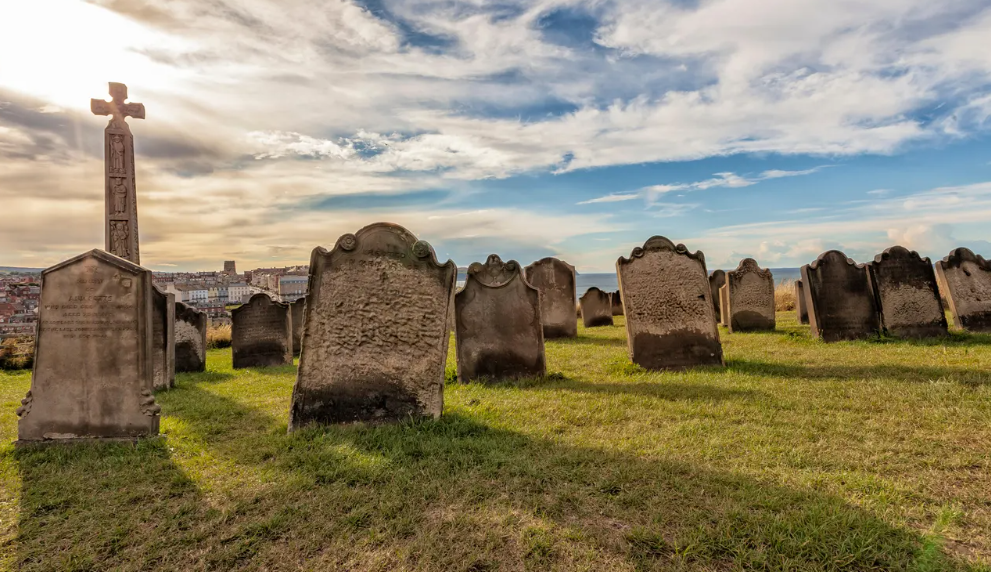
The previous item leads us seamlessly onto the “right to die“, which is a surprisingly popular cause at the moment. There are very real concerns about the way that “voluntary” euthanasia could provide a cloak for deliberate murder and open the door to a society in which human beings past their productivity sell-by date are quietly disposed of before they become too much of a drain on the economy. In broader terms, the concept of a “right to die” is nonsensical, since it is the one “right” with which we are all born and which can never be taken from us, in the long run. Much more useful, surely, would be a “right to live”? But this, along with the right to be free, is something that will never be accorded to us by our rulers, who much prefer fake “rights” that merely serve their own interests. Our right to live fully and freely is something we are going to have to claim for ourselves by joyfully demolishing the machineries and machinations of the money power.
4. Max Wertheimer: an organic radical inspiration
The latest in our series of profiles from the orgrad website.

“A thing may be true in the piecemeal sense, and false, indeed a lie, as a part in its whole”
Max Wertheimer (1880-1943) was a psychologist who developed the holistic idea of Gestalt, or underlying form.
A Prague-born Jew, forced to flee German-speaking Europe by the rise of Nazism, his organic worldview was very specifically anti-fascist.
The pseudo-holistic racists of the Third Reich claimed that piecemeal or fragmented thinking was a Jewish trait.
Wertheimer turned this round against them. He argued that the Nazis had only been able to flourish because the modern world had cropped humanity’s thinking capacity.
Piecemeal thinking – strings of propositions torn from their original living context – was being used by fascist demagogues and certain intellectuals to hoodwink people into accepting their ideas, he said.

In the 1934 essay ‘On truth’ he distinguished between truth and mere facts. Facts, brandished as a weapon by “scientific” minds in the Nazi system, meant nothing on their own.
Truth was a holistic understanding of the significance of various facts in the wider context of their relationship to one another and to a larger whole.
He wrote: “A thing may be true in the piecemeal sense, and false, indeed a lie, as a part in its whole”. (1)
Wertheimer judged that the key concepts of truth, ethics, democracy and freedom were all under attack from contemporary academic thinking, influenced by positivism, pragmatism and cultural relativism.
 Indeed this anti-holistic stance had itself helped prepare a modern intellectual field in which people were unable to think properly and in which it had been possible for the Nazis to succeed.
Indeed this anti-holistic stance had itself helped prepare a modern intellectual field in which people were unable to think properly and in which it had been possible for the Nazis to succeed.
In an essay on ethics, he took a critical look at ethical relativity which – like the Nazis with their German/Aryan particularism – denied the existence of ethical universals.
Ethical positions were instead regarded as mere historical facts, changing with place or time.
As a believer in the organic unity of humankind, Wertheimer disputed this and insisted that experience showed that most people, “when faced with clear, actual injustice”, responded spontaneously in ways that human beings would universally consider decent and ethical. (2)
While people were influenced to a great extent by the “outer shell” of various cultural norms, this tended to crack apart “in a serious moment” and the fundamentally “simple, good” person inside usually emerged. (3)
This was all linked to people’s ability to think clearly. Wertheimer argued that it was only when they had a proper understanding of a situation that their inner ethical code could be activated. Where their grasp of the truth was obstructed, their ethical response was disabled.
 To illustrate this question, Wertheimer analysed the causes behind the anti-semitism of a hypothetical young Nazi Party member.
To illustrate this question, Wertheimer analysed the causes behind the anti-semitism of a hypothetical young Nazi Party member.
He wrote: “A young, idealistic party member is passionate in the negative evaluation of members of a certain race. It is not sufficient in such cases to give the formulation: in one system of evaluations, members of this race are positively evaluated, in another negatively.
“This young man perhaps believes thus only because he has been brought to this state through suggestion, propaganda, through the wanton slander that this race is a poisonous snake. He does not really behave with respect to A (members of this race) but to a B which he has been taught to identify with this race.
“The real problem here lies not only in the behavior of the young man, but in the enforcement of the blind identification. To take away by artifice the possibility of seeing the true situation through the enforcement of blind judgments, of improper narrowing of the mental field, induction of blind centering, deprives man of the prerequisites for our problems”. (4)
Thus, for Wertheimer, the fragmented and inadequate thinking of the modern era had created an intellectual confusion in which unthinking anti-semitism could become widespread.
 From this perspective, Anne Harrington points out, Nazism was “a sickness of logic rather than, as so many of Wertheimer’s peers were saying, a phenomenon driven by powerful feeling and unleashed instinct”. (5)
From this perspective, Anne Harrington points out, Nazism was “a sickness of logic rather than, as so many of Wertheimer’s peers were saying, a phenomenon driven by powerful feeling and unleashed instinct”. (5)
Wertheimer’s development of Gestalt Theory, she adds, “affirmed what Goethe, in his way, had long known; that the basis of lived reality was not meaningless particles but rather ‘immanent structuralism’, order, and wholeness”. (6)
While right-wingers in Germany deployed the term Gestalt to concoct racist theory, Wertheimer, in exile in the USA, was defining it as a principle of clear thinking that would defend universal human freedom.
The Gestalt psychology which Wertheimer developed along with Kurt Koffka and Wolfgang Köhler, was an influence on the anti-capitalist Critical Theory of Herbert Marcuse, Max Horkheimer and the Frankfurt School in general.
Several decades after Wertheimer’s death, in 1979, his analysis was taken up an article in the Gestalt Theory review to counter the suggestion that holistic or organic thinking was in any way instrinsically fascist, as some claimed.
In fact, insisted author Gerhard Portele, the very essence of Nazism lay in its narrowed-down industrialised thinking and in the way it had turned its back on the wider universal whole of humankind.
He wrote: “The Nazis, with their calculating book-keeping rationality, were trained in piecemeal thinking to an extreme degree and viewed people as cogs”. (7)
Video links: Max Wertheimer, Interaction Design and Gestalt Principles (5 mins), The optical illusion of motion (5 mins).

1. Max Wertheimer, ‘On truth’, Social Research 1 (2), cit. Anne Harrington, Reenchanted Science: Holism in German Culture from Wilhelm II to Hitler (Princeton, NJ: Princeton University Press, 1999), pp. 133-34.
2. Max Wertheimer, ‘Some problems in the theory of ethics’, Social Research 2 (3), cit. Harrington, p. 134.
3. Ibid.
4. Wertheimer, ‘Some problems in the theory of ethics’, cit. Harrington, p. 135.
5. Harrington, p. 135.
6. Harrington, p. 117.
7. Gerhard Portele, ‘Gestalttheorie und Wissenschaftstheorie. Pläyoder für eine alternative Wissenschaft’. Gestalt Theory 1 (1): 26-38, cit. Harrington, p. 211.

Since the report in our last bulletin, the Great Resist has continued to build, spearheaded by the Dutch farmers. As well as turning more direct, it is becoming broader than ever as people realise the scope and interconnectedness of the assault being launched against us by the global mafia. Expect even more feisty resistance everywhere this autumn!

* * *
“The COVID-19 pandemic has facilitated substantial interest in citizen monitoring solutions”, declares a sinister report published in the USA. It describes itself as “the only report of its type to assess market opportunities for infrastructure support of the social credit market”, adding: “Infrastructure to support social credit systems represents a $16.1B global opportunity by 2026”.
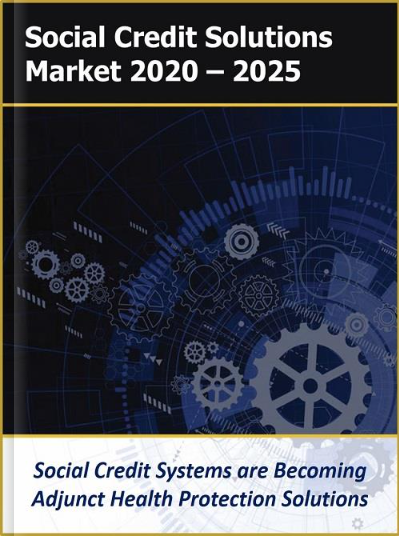
* * *
An intruiging new book by US independent journalist Whitney Webb is due out in September. One Nation Under Blackmail is described as “a damning indictment of the consequences resulting from the nearly century old relationship between both US and Israeli intelligence and the organized criminal network known as the National Crime Syndicate”. It specifically explores how that nexus developed the sexual blackmail tactics and networks associated with the late sex trafficker Jeffrey Epstein.

* * *
“Billionaires who own the technological armory of lockdown added $5 trillion to their wealth and the world’s ten richest men doubled their fortunes due to ‘pandemic super profits’,” writes W. Aaron Vandiver in an August 10, 2022, article entitled ‘The Disastrous High-Tech War on a Pathogen‘.

* * *
“How the billionaire class is seeking to control a universe that is uncontrollable” is a great video exchange, full of empowering despite-it-all optimism, between Dr Julie Ponesse and Michael Driver.
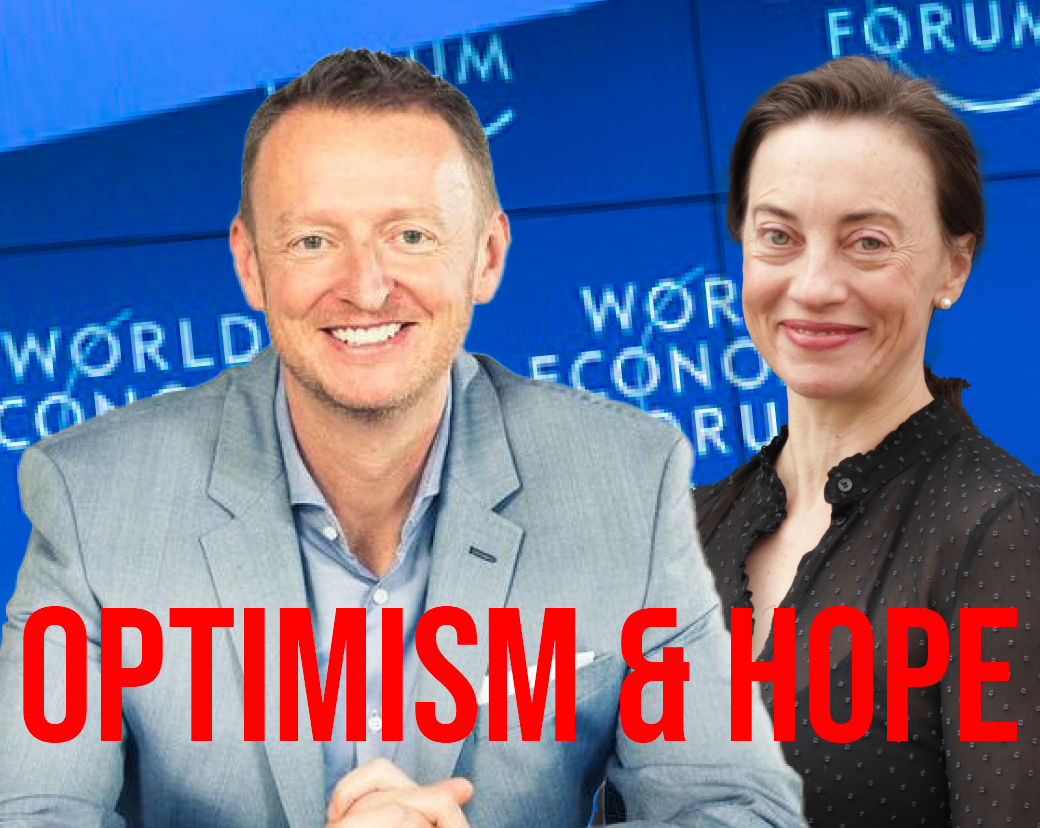
* * *
Uninformed Consent is a new two-hour documentary from Matador Films in Canada. It takes an in-depth look into the Covid 19 narrative, who’s controlling it, and how it’s being used. You can watch it here.
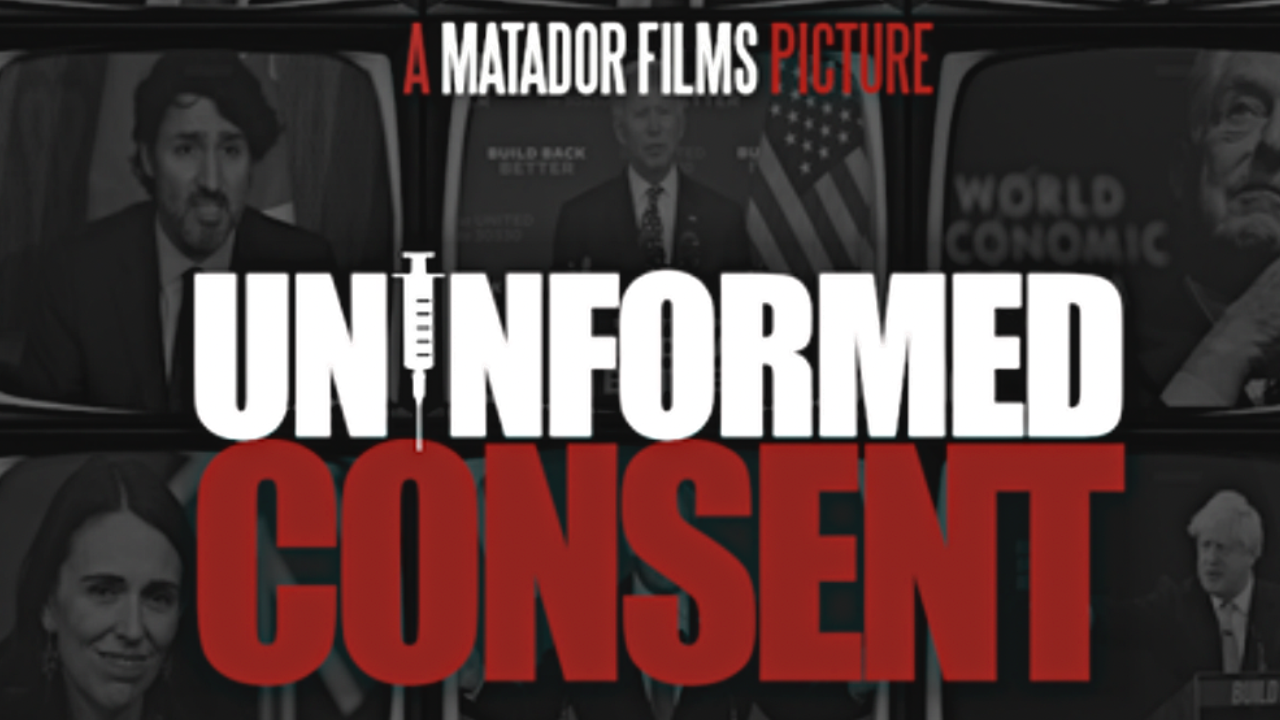
* * *
Robots are not our friends. They are machines, literally soulless and heartless, with no interest at all in the well-being of human beings. Yet more confirmation of this obvious truth came in Russia this July when a chess-playing robot broke a seven-year-old boy’s finger, which it apparently had been unable to distinguish from a chess piece…

* * *
For anyone who would like to listen to, rather than read, articles from this site, we now have a page featuring audio recordings of some 25 readings by Winter Oak’s Paul Cudenec.
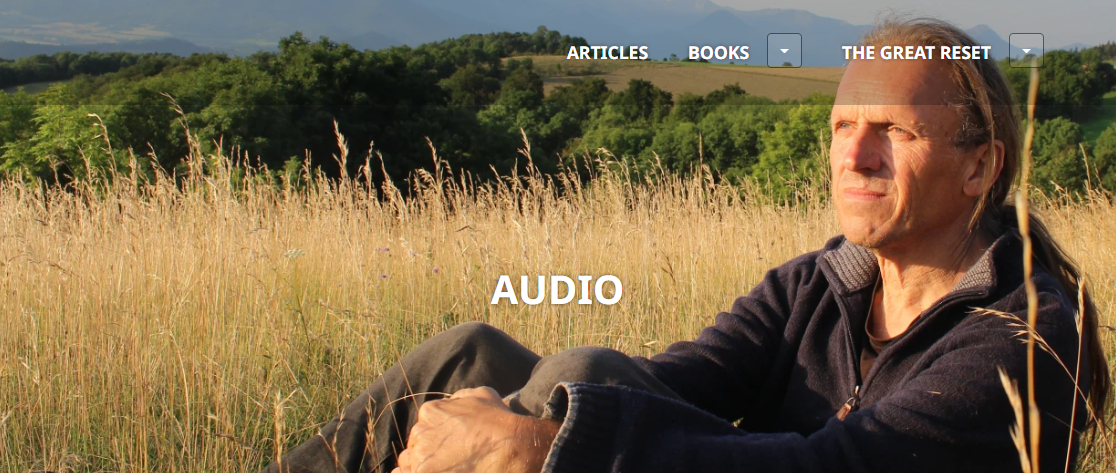
* * *
“In the excitement over the unfolding of his scientific and technical powers, modern man has built a system of production that ravishes nature and a type of society that mutilates man”. E.F. Schumacher

(For many more like this, see the Winter Oak quotes for the day blog)
If you like this bulletin please tell others about it. Subscribe by clicking the “follow” button.
—–
Back Issues
Follow Winter Oak on Twitter at @WinterOakPress
